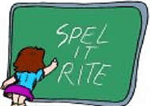Grammatical Gaffes on the Web are the Worstest

 They're maybe one or too things wrong with this sentence your reading, or may be even five - quite possibly more.
They're maybe one or too things wrong with this sentence your reading, or may be even five - quite possibly more.
Grammatical gaffes can have a devastating effect on Web workers. Content has long been the King of the Internet, but that has never been so true as it is today. Website visitors ultimately make their decisions based on the quality and relevance of the content they consume, so grammatical errors have a profoundly negative effect on overall user experience - and thus, on conversion rates.
Users are not the only ones put off by careless grammatical errors. Search engines do not look kindly on poorly written and/or edited content. The most severe situations will usually involve error-ridden page titles or headlines, which can actually prevent the offending Web page from appearing in search results on Google, Bing and other engines.
So, let's say that you are neither a Pulitzer Prize-winning author nor a university English professor; how do you know what pitfalls lurk in the shadows? Here are a few common mistakes that all Web workers can and should avoid:
Correct Usage of Homonyms
Homonyms are words that are pronounced the same but differ in meaning and also frequently in spelling. Some classic examples of these include the following:
- Their (to show possession), They're (a contraction of "they" and "are") and There (which refers to a place or acts as a pronoun)
- Your (to show possession) and You're (a contraction of "you" and "are")
- Other common misuses of homonyms can include "affect/effect" and "then/than"
These mistakes are easy to make and can be hard to catch, but the negative "effects" they have on big brands and small businesses can be significant.
Hyphens and Apostrophes
Making sure that you use punctuation properly can make a big difference in terms of your SEO success. But these things are often determined by preferences in style rather than universal grammatical rules.
The common Web terms "Email/e-mail", "Ecommerce/ecommerce", "eBooks/Ebooks", etc., pose challenges for online content providers, and stylistic standards can change overnight. The best advice when it comes to specific Web-related jargon is to remain consistent; if not throughout your entire site, certainly throughout a given article or post - anything less will be seen as unprofessional by the eagle-eyed members of your audience.
Apostrophes are also often overlooked but vitally important elements to creating great Web content. The most typical infractions occur in the different case uses of the words "its" (possessive) and "it's" (it + is), and in the different versions of commonly used acronyms such as "CEO's" (possessive) and CEOs (plural).
Dangling Modifiers and Subject/Verb Agreement
Dangling modifiers take place when a sentence is structured in such a way that a modifying word or adjectival clause is associated with a word or phrase that is not the one it is supposed to be modifying.
Example: The robber ran from the policeman, still holding the money in his hands.
Subject/verb agreement simply means that the main verb, or action, in a sentence must "agree" in number with the subject, or main noun. In other words, a plural subject (cats) requires a plural verb (ran), while a singular subject (umbrella) requires a singular verb (opens).
Both of these errors can make it hard for readers to decipher the intended meaning of a sentence, thus obscuring your brand's message.
This Goes Without Saying
You may not have a crack editorial staff at your disposal, but most website owners and content producers do have access to simple spellcheck programs that can save them a lot of headaches and maybe even some business. Avoid using them at your own peril.
Final Word
Did you see what we did here? We purposely planted dozens of grammatical errors in this very post to see who amongst you is really paying attention. Let's have it in the comments section, and we'll be happy to provide a critique.

Subscribe to Our Newsletter!
Latest in Marketing








